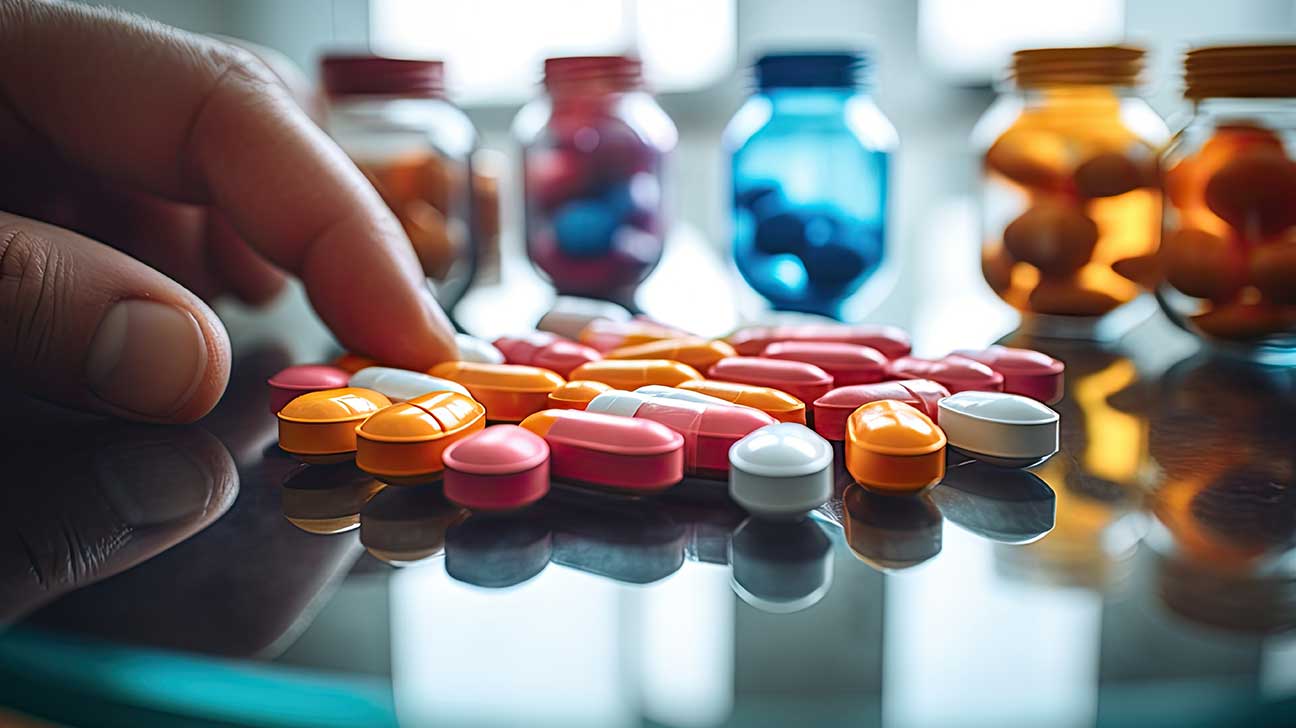
Drug addiction withdrawal is a critical phase during recovery that may be marked by an array of challenging and potentially life-threatening withdrawal symptoms.
Depending on the substance being abused, there are several medications that may be prescribed to manage withdrawal symptoms and help people get on track to lasting sobriety.
Causes Of Drug Addiction Withdrawal
Becoming addicted to drugs changes the way the body and mind work, and can profoundly disrupt a person’s life if left untreated.
When the body has become dependent on a drug, a period of withdrawal will occur if the person using the substance abruptly stops ingesting it.
The underlying causes of withdrawal are rooted in the relationship between the substance, its effects on the brain’s chemical balance, and the body’s attempt to regain balance when the substance is no longer available.
Common Withdrawal Symptoms
Withdrawal symptoms will differ depending on a variety of factors including the type of drug abuse, the person’s overall health, the severity of addiction, and more.
The most common withdrawal symptoms include:
- nausea
- vomiting
- sleep difficulties
- restlessness
- drug cravings
- increase in heart rate
- muscle aches
- hallucinations
Some symptoms may be life-threatening, such as seizures or delirium tremens (DTs) from alcohol withdrawal. It’s important to seek immediate medical help if symptoms such as these arise.
Withdrawal Medications By Substance
Upon entering a drug detox center, people with substance use disorders will be assessed by medical professionals to determine what type of treatment plan would be most effective.
During drug and alcohol detox, clients may be prescribed a range of drugs to help alleviate the uncomfortable mental and physical side effects of withdrawal.
Below are some of the different medications that are used in the detoxification process, organized by substance.
Opioids
Opioid addiction withdrawal will start at around six to 12 hours after the last dose and peak at 72 hours.
Opioid withdrawal symptoms include anxiety, insomnia, agitation, nausea, depression, goosebumps, excessive sweating, and diarrhea.
Medications used for opioid dependence include:
- methadone
- Ambien
- buprenorphine
- Vivitrol (naltrexone)
While opioid withdrawal is not usually fatal, even without medical intervention, the chances of relapse are far less likely if a person is detoxing in a medical setting.
Stimulants
Stimulants such as methamphetamine and cocaine can take up to two weeks to fully detox from.
Withdrawal symptoms may include anxiety, chills, dehydration, paranoia, body aches, weight loss, impaired memory, slowed movements, and more.
Medical detox is the safest way to manage symptoms of withdrawal. Depending on the stimulant, the client may be told to quit by gradually reducing drug use, a method called tapering.
While tapering is effective, medications such as clonidine may be prescribed in place of stimulants when tapering off use.
Doctors may also administer antidepressants and anti-insomnia drugs such as trazodone.
Benzodiazepines
Benzodiazepine withdrawal can result in a state of shock when not medically supervised. This is due to how benzos impact the brain’s gamma-aminobutyric acid (GABA) neurotransmitters.
Withdrawal from benzodiazepines can last a few weeks to several months, depending on a variety of factors such as length of addiction, the amount of the drug typically used, and individual chemistry.
Benzodiazepine medications may include:
- acamprosate
- flumazenil
- buspirone
- Valium (diazepam)
- Ativan (lorazepam)
- Klonopin (clonazepam)
Other Medications Used In Drug Detox
Below are some of the other drugs commonly provided for people experiencing withdrawal symptoms.
These drugs may include:
- Librium (chlordiazepoxide) for the treatment of alcohol withdrawal symptoms, anxiety, and tremors
- phenobarbital and other barbiturates for anti-seizure management, insomnia, and alcohol addiction treatment
- disulfiram, a detox medication to help discourage people from drinking
- Suboxone, a prescription drug used to treat opioid dependence
- clonidine and other antihypertensive drugs that lower high blood pressure and heart rate by relaxing the arteries
- Narcan (naloxone), an opioid antagonist that is primarily used to reverse an opioid drug overdose
If you or a loved one are battling substance abuse and have questions about the detox process, reach out to your primary care provider for more information.
Addiction Treatment Programs
After the detoxification process is complete, many people will transition to an inpatient or outpatient program and continue to receive evidence-based treatment services.
Treatment options may include:
- behavioral therapy
- medication-assisted treatment (MAT)
- 12-step programs
- general healthcare services
- dual diagnosis treatment for co-occurring mental health disorders
- counseling
Find A Substance Abuse Treatment Center Today
Take the first step toward lasting sobriety and contact our team at DetoxRehabs.net today.
Article Sources- National Institute of Health (NIH) — Detoxification from benzodiazepines: schedules and strategies
https://pubmed.ncbi.nlm.nih.gov/1675694/ - National Institute of Health (NIH) — Pharmacological strategies for detoxification
https://www.ncbi.nlm.nih.gov/pmc/articles/PMC4014033/ - Substance Abuse and Mental Health Services Administration (SAMHSA) — Medications for Substance Use Disorders
https://www.samhsa.gov/medications-substance-use-disorders


